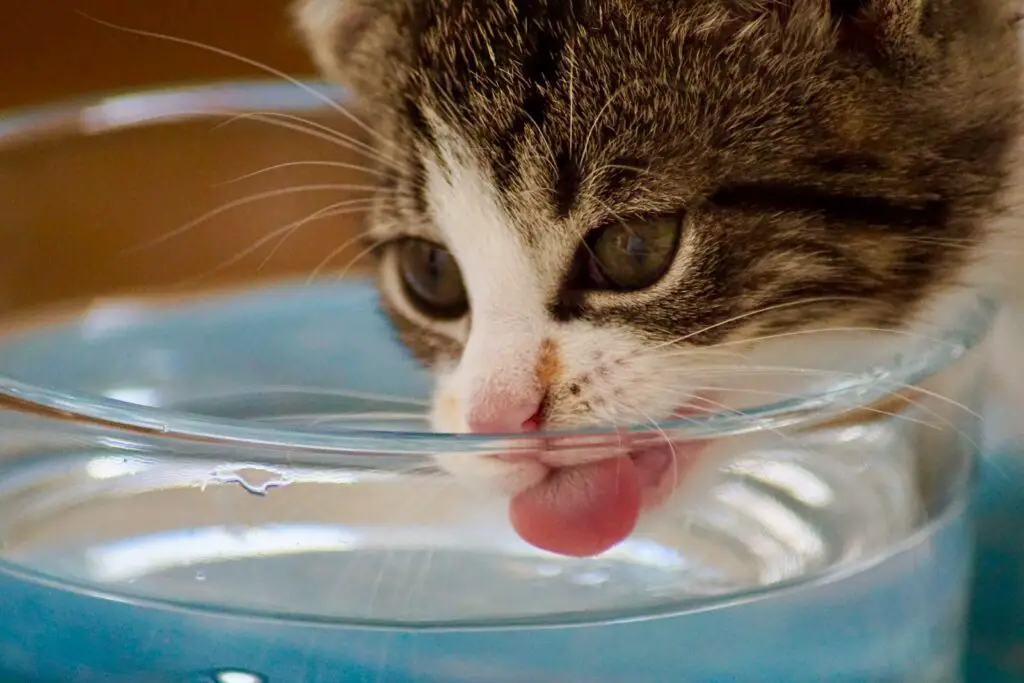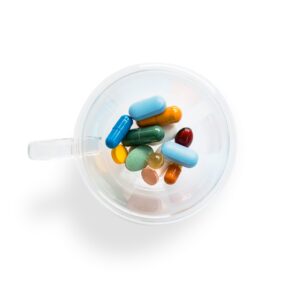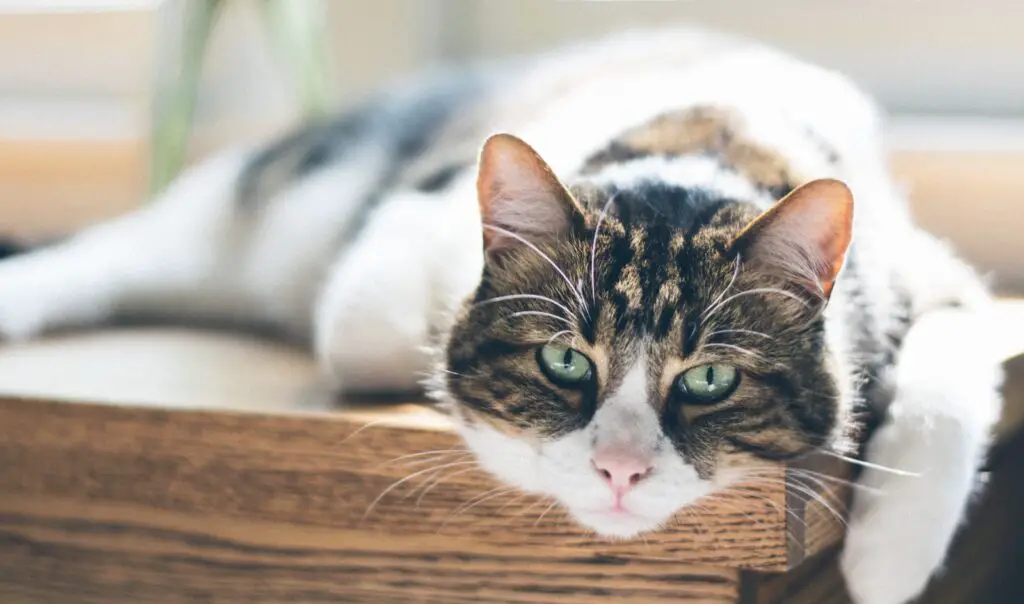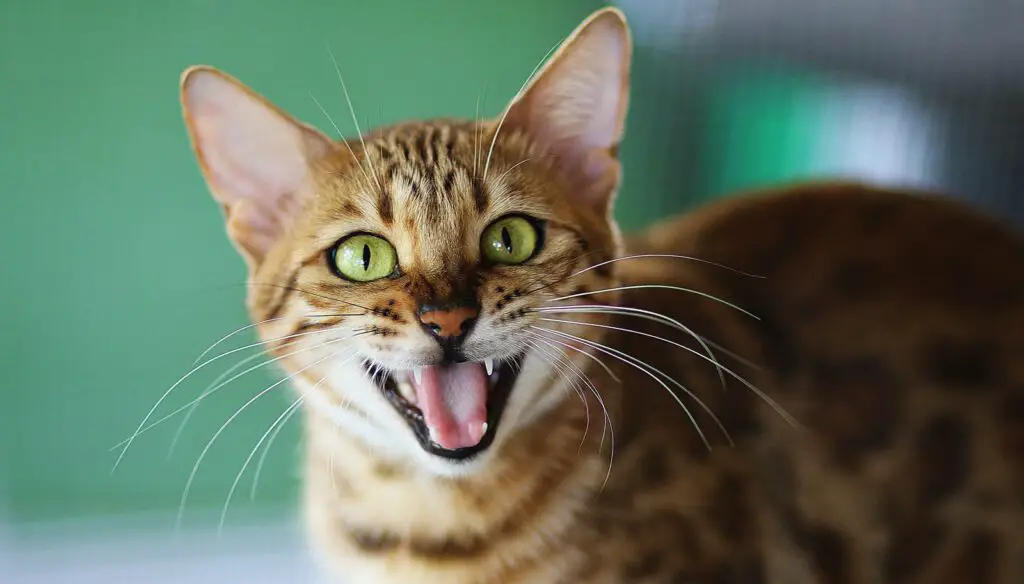
Key points
- Cats have one of the longest life expectancies of all household pets. The life of an average cat lasts around 15 years;
- The lifespan of a feline depends on different factors such as its diet, surroundings, breed, physical care, emotional care, etc.;
- Outdoor cats are exposed to many different dangers that affect their life expectancy every day. Indoors cats generally live longer;
- A high-quality diet formulated with animal protein is necessary to provide a cat with crucial vitamins, minerals, and fiber and thus help extend its life.
Just like all loving cat owners, you want your cat to live a long and happy life. But, unfortunately, even though our furry friends are said to have seven lives, their time on Earth is limited.
The life expectancy of domestic cats is much higher than that of felines in the wild. With an average lifespan of 15 years, house cats live longer than dogs, rabbits, hamsters, and many other pets. In some cases, cats can live for 20 years or even longer. How long your cat will live depends on a variety of factors such as its diet, surroundings, and care. The breed of the cat might also play an important role. Some breeds suffer from numerous hereditary diseases that can significantly shorten the life of the animal. For instance, British breed cats usually reach the age of 15, Persian cats live around 20 years on average, and Siamese cats can survive for up to 30 years.
But do not forget each case, and each cat is different. No matter how well you care for your cat, you can never get a guarantee that your pet won’t get sick and will reach old age if it is properly cared for. Unfortunately, diseases often occur for no specific reason. However, the tips in our article will give you a good chance of extending your pet’s life.
Table of Contents
Top Things You Can Do to Extend Your Cat’s Life
Get Regular Vet Checkups
Preventive medical care is one of the most crucial contributing factors to help your cat live a long and healthy life. Regular checkups can help your vet identify diseases early on and give a chance to cure them, especially in elderly pets.
Contagious cat diseases such as feline infectious peritonitis (FIP) and cat flu can significantly reduce the life expectancy of a cat or even be fatal. Viral infections cause death in 6.5% of cats who die before the age of 5. Timely vaccinations can reliably protect your cat from these diseases!
The only way to ensure that your cat gets all recommended vaccines, prescription flea, tick, and heartworm medications is to bring it to a vet at least once a year.
Keep in mind that it is better to bring your pet to one veterinarian who knows your cat’s health history rather than consult with different specialists every time your cat has health issues. Your veterinarian will know the cat’s medical history and thus may even be able to diagnose the pet over the phone in some situations.
Choose The Right Diet

Diet also plays an essential role in feline longevity. On the one hand, correct feeding prevents diseases, and, on the other hand, it helps your cat maintain a robust immune system and remain fit. It is also crucial to ensure that the diet is adapted to the cat’s life phase and health condition.
Cats are carnivores, and therefore they need to have a lot of high-quality protein in their food. The food of a healthy cat should contain at least 70-80 percent high-quality meat. Keep in mind that animal by-products on feed labels indicate poor-quality meat. Inferior food can cause your pet to develop obesity, kidney disease, diabetes, and allergies.
Low-grade dry food, in particular, can easily make cats overweight and sick, as it contains too many plant-based ingredients, grains, and sugar. This significantly increases a cat’s risk of getting diabetes.
Cat food that contains additives such as preservatives, artificial flavors, flavor enhancers, or colorings should also be avoided as much as possible.
Insect-Based Cat Food
Quality dry food usually has a well-balanced composition to provide the cat with all the necessary nutrients. One example of this is PetCan insect-based pet food. Made from healthy and sustainable dried and processed insects, our food meets your cat’s nutritional needs and doesn’t hurt the environment. Our top-quality cat kibble is low in fat, high in iron, calcium, fiber, and protein. As a result, this diet can promote cat brain health, help your cat maintain a healthy weight, and avoid health issues. Moreover, this food is hypoallergenic, making it the best solution for felines prone to allergies or cats with sensitive tummies.
Choosing a high-quality insect-based diet for your pet is a great way to ensure that your pet gets all the protein it needs while simultaneously making your contribution to reducing greenhouse gas emissions.
A balanced diet will help extend your pet’s life and protect it against colitis, kidney failure, allergies, obesity, and other diseases. Once you select the correct diet, just make sure to feed your pet three times a day and avoid overfeeding the cat.
Maintain Water Balance

Cats often tend not to drink enough. However, it is important for a cat to consume lots of water, as this can help prevent different diseases. For example, cats are more likely to develop urinary tract and kidney issues if they don’t drink enough fresh, clean water.
If your feline has problems with water consumption, a drinking fountain might be a good option to consider. It encourages cats to drink since they love running water.
Give Your Kitty Vitamins
Food supplements can be used to alleviate different health issues and prevent malnutrition. For instance, your cat may benefit from an additional vitamin boost for improved joint, immune system, fur, and skin health, which can, in turn, extend its life expectancy. But if you feed your cat correctly formulated cat food, you typically will not need to provide it with any additional vitamin supplements. Animal health experts recommend giving your cats vitamins only if a vet prescribes them.
Make Sure Your Cat Isn’t Under and Overweight
Feline obesity is often underestimated because fat cats look cute to many people. But this can be very dangerous, as overweight cats have a much greater risk of developing certain diseases. Diabetes mellitus and joint diseases such as osteoarthritis are just some examples of this. So it’s a good idea to regularly weigh your cat to make sure that it stays at a normal weight.
Being underweight is not healthy for a cat either because it weakens its immune system. If you suspect that your cat might be underweight, you should consult a veterinarian, as this can also be a symptom of a disease.
Keep Your Cat’s Teeth Clean
You should start getting your cat used to proper dental care as soon as the kitten begins trying its teeth on everything it discovers while playing. In addition to wet food, cats should always have dry food available, as cats’ teeth are mechanically cleaned of plaque when the animal crunches hard chunks of food. In addition, hard food helps massage the gums, strengthening the teeth and the bones that hold them.
Cat owners know that brushing a cat’s teeth is far from easy. However, it is worthwhile to get a kitten used to it in a playful way so it can endure the procedure later. Cleaning cat teeth with a brush is only essential if your pet has very specific dental problems such as misalignments or if you can’t feed your cat dry food for some reason. You can find special cat toothbrushes or finger cots and toothpaste in a local pet store or online.
Clean the Litter Box Every Day
Cleaning your cat’s litter box daily will both help you keep your home smelling good and allow you to notice changes in your cat’s urine and feces. If you see blood in the litter box, call a veterinarian immediately.
Make Your House Safe for a Cat
Although road traffic poses the greatest danger to cats, falls from balconies and other accidents at home are not rare. So all responsible cat owners need to take the time to make their homes safe for their cats. For instance, you should not leave your windows tilted when your cat is at home alone or unsupervised.
Unfortunately, cat owners cannot influence or prevent accidents on the road no matter how much they want to keep their pets safe. So if you live on a busy street, you should think carefully about letting your cat go outside.
You can also fence your garden in a cat-safe manner. This is not easy, as cats jump high and get through even very small holes. However, you should install a cat-proof fence if possible, as this is a good solution for protecting cats from cars and other vehicles while still allowing them to enjoy the outdoors.
Provide Opportunities for Physical and Mental Activity
Cat owners also need to provide their pets with enough physical and mental activity. If a pet just stays on the couch all day, every day, it will significantly reduce its life expectancy, so you need to make your cat move no matter how lazy it is. Take time to play with your cat every day. Remember that cats also need opportunities to keep themselves busy when they are at home alone. For example, you can purchase a scratching post and some toys for your cat.
While many cats love working out, playing, and cuddling, it is also essential to take care of their mental and emotional health. There is a variety of interactive toys for cats available online and in pet stores.
Groom Your Pet Every Day
A cat’s coat is considered to be a mirror of its health and well-being. Of course, most cats groom themselves regularly with their tongues. However, regular brushing will help you notice all new lumps, bumps, or sore spots which may appear on your cat’s body.
Get Your Pet Spayed
All responsible cat owners should be aware of the benefits of sterilization. Studies show that neutered cats live 62 percent longer than animals that didn’t get castrated. Sterilization makes female cats less likely to develop cancer of the reproductive organs. Neutered male cats are calmer and, unlike their unsterilized counterparts, don’t take long, risky trips to look for a partner.
Sterilization is a relatively safe procedure that also prevents the overpopulation of cats!
Monitor Your Cat
The saying “an ounce of prevention is worth a pound of cure” holds true both in human and veterinary medicine. If you notice that your cat is experiencing a lack of appetite, lethargy, or has an unusual discharge coming from its eyes, you should consult a veterinarian right away. Symptoms such as coughing, sneezing, excessive vomiting, or peeing outside the litter box might also signal that your pet has health issues. Remember that every illness can have a significant effect on the life expectancy and well-being of your pet.
Keep Your Cat at Home
By keeping your cat indoors, you prevent it from being hit by a car, eating toxic substances, and getting infected by disease-carrying pests and parasites. Once you let your cat out, you cannot control it anymore.
Get Your Cat Microchipped
Despite your attempts to keep your cat in the house, it still might find its way out. That is why veterinarians recommend getting all cats microchipped. A chip will make it easier to find your cat and identify your cat if it gets lost outside and it’s completely safe.
FAQ
How can I prolong my cat’s life?
The life expectancy of a cat depends on a variety of factors such as diet, environment, and care. Some breeds are likely to get hereditary diseases that can significantly shorten their lifespan. However, with the proper care and treatment, you can substantially extend your pet’s life even if it’s ill.
Do cats live longer if you love them?
Cats that spend a lot of time with their owners and feel well taken care of typically live longer and happier lives. On the contrary, lack of attention, indifference, and regular punishments can shorten animals’ lives.
Can a cat live to 20?
The average life expectancy of cats is around 15 years. This is longer than the life expectancy of many other pets. Some cats can even live up to 20 years or longer.
What are the signs of a cat dying?
Here are some signs that your cat is dying:
- The animal is frequently in pain
- It has little or no urge to move
- The cat is not eating or drinking
- The animal is lethargic
- The cat shows general behavior changes
Can cats sense death?
Cats can often predict their own death. In some cases, they may even leave their home to find a secluded place to die peacefully.
Is my cat suffering?
If a cat suffers from pain, it will likely have a tense posture, be reluctant to move, droop its head, be upset, or refuse food and water.







